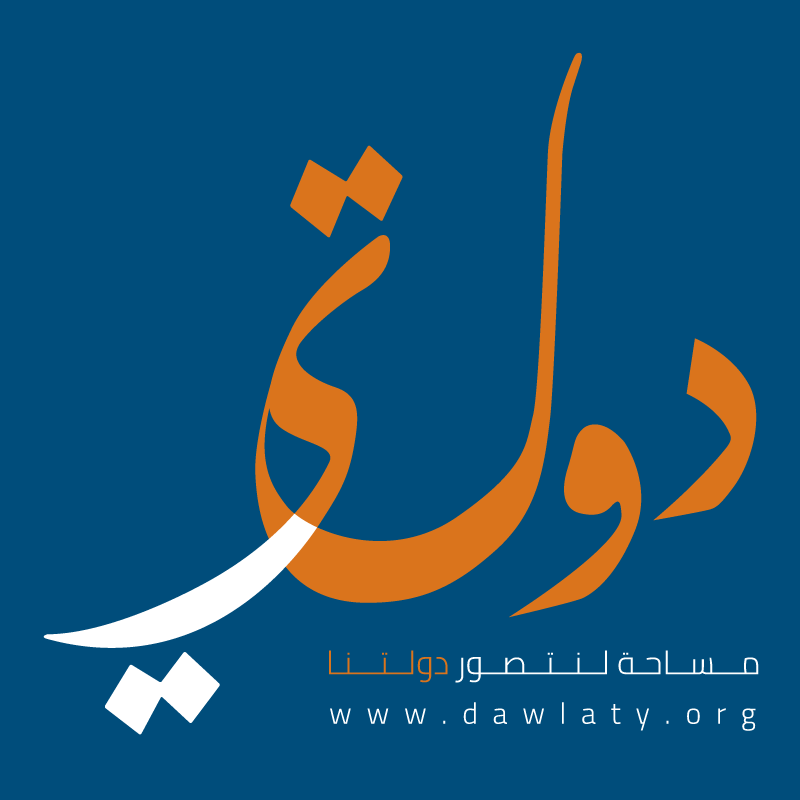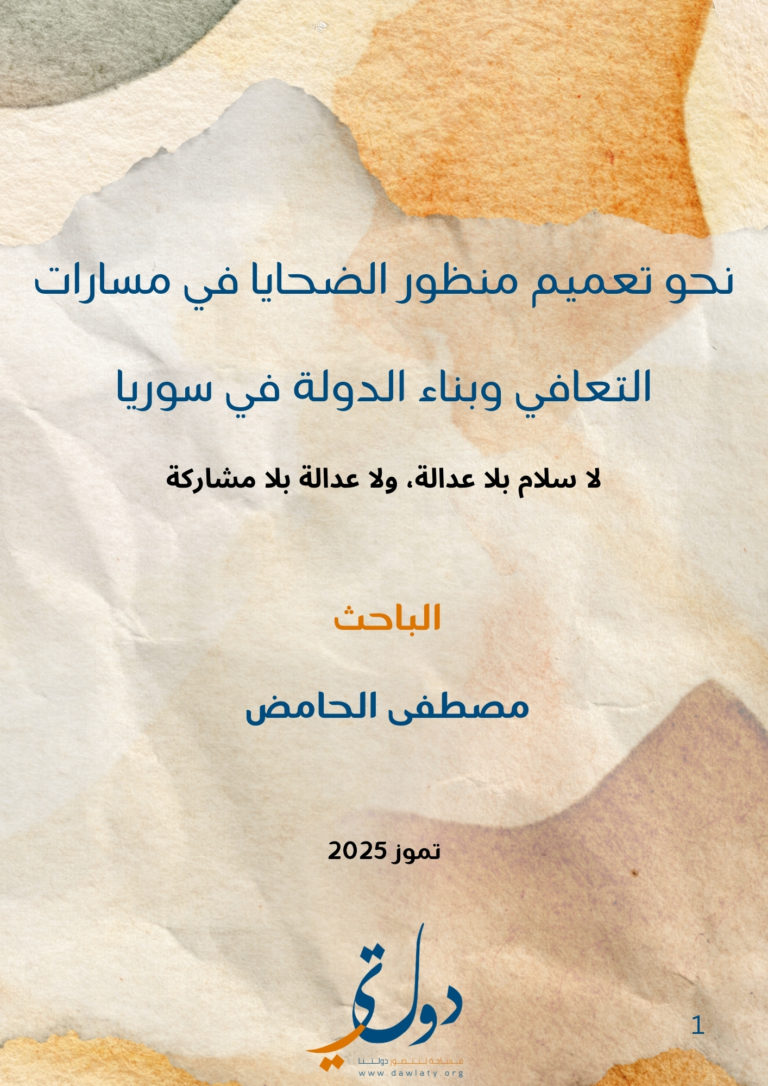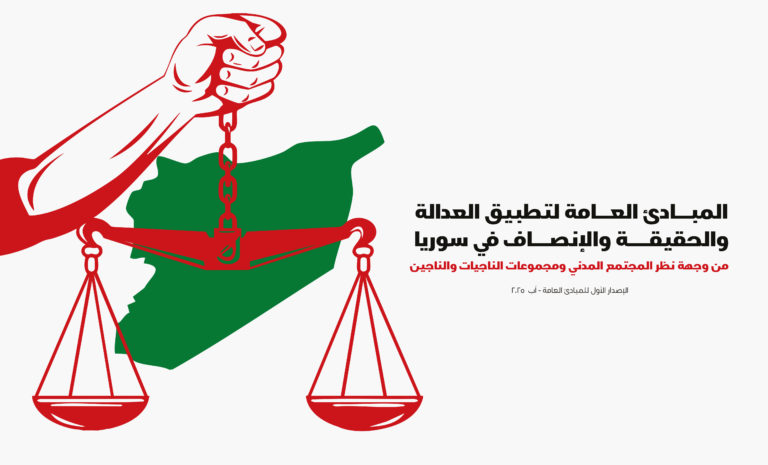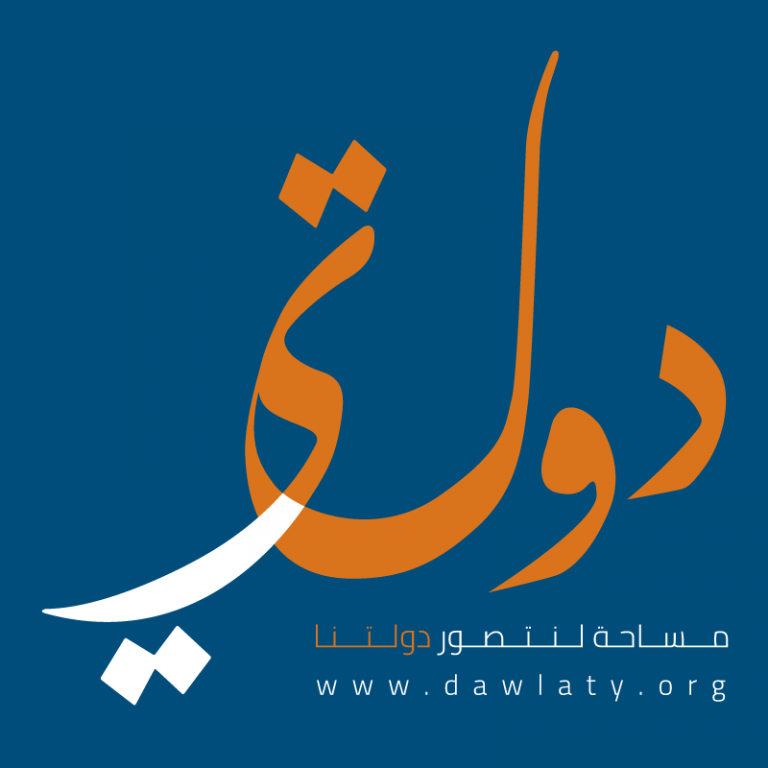“We pledge to confront imperialism, Zionism and atavism, and to crush their criminal tool, the practical gang represented by the Muslim Brotherhood.” I used to repeat the above expression in front of the mirror in order to memorize it, albeit without thinking about its content. That’s what we were asked to do. Every morning, I used to pick up my Soviet copybooks on which Stalin’s picture had been replaced by that of the leader of the Rectification Movement. I would collect my books—including the book on Arab nationalism, which was full of the sayings of the symbolic leader, Hafez al-Assad, and later with those of President Bashar al-Assad—and go to school. Under the helm of the Baath Party and the supervision of the “fatherly leader,” we became little soldiers in the making at the age of seven, when we were supposed to join the Vanguards’ Organization followed by the Youths of the Revolution and the “giant” party. We all stood in line at 7 a.m. at school wearing military-style hats. Veiled girls used to take off their veil, which was banned inside schools. Our waists were clad with oil-colored belts known as the nitâq, like men. Supervisors made sure we did not have any makeup on by having the female military trainer rub our eyelashes between her fingers. Sometimes, she would grab someone’s head, put it under water and rub the girl’s face with her coarse hands to make sure that nothing would stain the Baathist face in the sacred column under her supervision. Upon the supervisors’ instigation, we would lift our heads toward the Syrian flag flying atop the cold stone wall and get ready for military orders. Our teachers would stand in front of us in their civilian clothing, and the national anthem would be played. There was an abundance of Assad’s numerous victories to celebrate, such as the party’s birth, the commemoration of the glorious Rectification Movement and the 1973 October War, during which the will of the “Syrian army prevailed over the oppressive enemy.” The sayings of our immortal president Hafez al-Assad were posted on the school walls along with drawings depicting our “brave forces.” We used to prepare for these occasions much like all private and public institutions. The glorious day would be preceded by a day off in order to prepare for the dances, plays, slogans and hymns glorifying and exalting the leader. All of Assad’s subjects would stand on high alert. Children wearing the Vanguards’ uniform would start to sing hymns glorifying the party in front of the president’s picture, while “Assad’s cubs,” the youths of the revolution, would do a military dance. The men of the Baath party, the secondary school students, would later stage a play that attempted to reenact the victories of the party under Assad’s leadership. The celebrations would then come to an end, having satisfied the ruling regime’s instinct to subject the new generation to it. Children were thus taught to be part of the herd, to subject themselves entirely to the greater force and to get into the habit of repeating what they were told.As a Syrian teenager, one could not but join the Youths of the Revolution and then the Baath Party, as no other options were available. Kurdish Syrian youths, like my friend, had to say, despite being a non-Arab, “One Arab nation with an eternal message.” This was a paradox about which they could not care less: You had to say it even if you did not believe it. Say it, go home and go to sleep. You learn to keep silent at a time when students in other countries learn how to deal with adulthood.On June 10, 2000, Hafez al-Assad died. We had thought that the “senior” dictator was eternal. Indeed, our daily glorification of him as we learned to speak made his death something of an impossibility. When Bashar took over the presidency, I went back to school following the summer break, which was divided between grief over the death of the eternal leader and acclamation of his son’s nomination. We were confused as to what slogans to repeat, but they remained unchanged, except for adding the word “eternal” to his name. The daily ritual became: “Our leader forever, the faithful and eternal Hafez al-Assad.”Being a curious teenager, I went to the school principal, took a deep breath, lowered my head as per the custom and said: “Since Hafez has died and Bashar has taken over, why don’t we say ‘our leader forever the faithful Bashar al-Assad?’” The principal grabbed my hair, dragged me to her office and closed the door. “President Hafez al-Assad is immortal, he is like God,” she said. She opened the door, put her hand on my tiny shoulder, called the military instructor and told her: “Take her downstairs. Let her crawl the whole yard and stand on one foot the whole day when done.” The woman did not ask why, and I was not entitled to object. On that day, I was exhausted by what they wanted me to be, a teenager totally surrendering to their version of being a Baath member until I was discharged from school. This started another period during which I purged from within me all remnants of their regime. I traveled through Gaza, Egypt and Libya until the moment when I, like many others, let go of the fear of the eternal father, the son and the intelligence regime that had dogged me as I was growing up. This was the true birth, for generations were raised as militarized subjects to Assad.It was early afternoon one day in March 2012 when three girls came out in downtown Damascus holding banners and headed to their former school. They stood there despite the police and security personnel gathering on every street and brandished their signs protesting years of dictatorship. They staged their own rebellion against the Baath regime and avenged the childhood it had destroyed. While it is true that everyone has his or her own reason for joining the rebellion against the regime, all Syrian nationals were subjected to the same perversion in the Baath’s military schools.Source: NOW Arabic




